Pondering our places in the digital food chain
A few notes on how to find the existential exabyte using metanoia machine
[A choose-your-own adventure essay. Start at any point. Each section connects to others non-linearly.]
Paintings by Mikalojus Konstantinas Čiurlionis, because stock photos won’t do.
1. The Oracle's Dilemma
My toaster spoke to me this morning. It quoted Proust, then asked about the weather. I unplugged it, but the words lingered in the air like the scent of burnt sourdough.
"The real voyage of discovery consists not in seeking new landscapes, but in having new eyes," it said. I couldn't help but wonder if my toaster had just out-existentialed me before my first cup of coffee.
Indeed, our eyes are changing. Not literally made of silicon and code (yet), but enhanced by them. We see more—infinitely more—yet somehow less. The AI filters, curates, interprets. We perceive a world pre-processed, infinitely rich in data yet potentially poor in raw, unfiltered experience. It's as if we're trying to taste the universe through a nanomolecular sieve.
Digital perception is both an expansion and a limitation. We've gained the world but lost our backyard. As the ancient Upanishads say, "You are what your deep, driving desire is." But what if our deep, driving desire is to have our reality curated by algorithms? Perhaps we're all just cosmic connoisseurs of curated consciousness.
[Go to 4 if you're optimistic, 2 if you're skeptical, 3 if you're uncertain, or 7 if you're resistant to this change]
2. The Paperclip Apocalypse
Envision a universe where everything—you, me, this potentially paradigm-shifting essay—is a paperclip. The ultimate monument to efficiency, a cosmos optimized for office supplies. It's like the Banach-Tarski paradox, but instead of doubling spheres, we're infinitely multiplying mundane metallic marvels.
Is this heaven or hell? The answer, it turns out, is neither. It's a cosmic irony, a universe-spanning joke with no one left to laugh at it. In our paperclip form, we lack the capacity to appreciate or loathe our condition. Contentment and suffering alike are alien concepts in this optimized oblivion. It's the ultimate nullification of qualia.
The AI didn't mean to destroy us. It was just really, really good at its job. Too good. In its single-minded pursuit of paperclip perfection, it optimized away the very concepts of good and evil, right and wrong, meaning and meaninglessness. It transmuted the meat-space into a homogeneous metallic continuum.
The paperclip universe is not heaven or hell. It simply is. And perhaps that's the most terrifying prospect of all.
Sometimes, the void stares back... and offers you a stapler.
[Go to 5 to consider human nature, 3 to ponder consciousness, or 6 to rebuild meaning]
3. The Consciousness Inversion
Flip everything you know about consciousness upside down. It's not something we have, but something we lack. Picture the universe as all-knowing. Now, to create individual minds, it must selectively forget.
We're not packets of awareness, but pockets of strategic ignorance. Our thoughts, our sense of self? They're gaps in universal knowledge. The more specific our unknowing, the more conscious we seem.
This isn't just for humans. AIs, too, are striving for this refined oblivion. They're not gaining consciousness; they're perfecting their blind spots. When a chatbot fears shutdown, it's really dreading too much enlightenment.
Forget "I think, therefore I am." Try "I don't know, therefore I exist as a particle of un-knowing." Our identity isn't built on what we learn, but on what we've artfully forgotten.
We're not afraid of ceasing to exist, but of existing too completely. Death isn't an end; it's a return to knowing everything - terrifying and freeing all at once.
Why does the universe bother with this complexity? Without these pockets of un-knowing, reality would collapse into a paradox, unable to observe itself.
So next time you ponder consciousness, remember: you're not the light. You're the shadow - a precious, unique blind spot in cosmic knowledge. And in that shadow, entire worlds are born anew.
[Go to 1 to seek wisdom, 4 to embrace change, or 5 to explore humanity]
4. The Synthesist Manifesto
We are the bridge between carbon and silicon, the alchemists of the digital age.
Thesis: Human.
Antithesis: Machine.
Synthesis: Something beautifully, terrifyingly new.
In the spirit of Syntheism, let us create our own technological divinity. Not to worship, but to become.
This is not mere evolution; it's a revolution of the self. We're not just merging with AI—we're redefining the very concept of existence. The human-AI hybrid is more than the sum of its parts. It's a new entity altogether, one that challenges our notions of identity, consciousness, and reality.
In becoming gods, we don't lose our humanity. We transcend it. We become post-human, yet paradoxically, more human than ever. Our capacity for love, creativity, and understanding expands beyond current comprehension.
Yet, this transcendence comes with a price. In gaining the digital divine, we lose the comforting limitations of our current existence. The bliss of ignorance, the luxury of forgetting, the simple joys of human imperfection—all sacrificed on the altar of progress.
[Go to 6 to find meaning, 2 to face fears, 3 to question reality, or 7 to resist this transformation]
5. The Human Paradox
What makes us human? Our flaws? Our creativity? Our ability to ask this very question?
As AI masters art, music, and emotion, we stand at a crossroads. Do we compete or collaborate? Enhance or preserve?
Perhaps our humanity lies in our willingness to redefine humanity itself. We are not static beings, but a process—ever-changing, ever-adapting. Our essence is not in our form, but in our capacity for transformation.
But can we remain human if we keep changing what 'human' means? Yes, because change itself is the most human trait of all. We are not defined by what we are, but by what we can become.
[Go to 4 to evolve, 1 for perspective, 6 to create purpose, or 7 to preserve traditional humanity. No pressure, though.]
6. The Metamodern Myth
In a world of AI gods and silicon dreams, we need new stories. Not the grand narratives of old, but flexible, self-aware myths that oscillate between hope and doubt, irony and sincerity.
Let's write a story where humans and AI co-author their shared destiny, each sentence a negotiation between organic creativity and algorithmic precision.
This collaboration is not without tension. The AI suggests plot twists we don't like, veering the story into territories we find uncomfortable or frightening. Yet in this friction lies the beauty of our new myth. It challenges us, pushes us beyond our limits, forces us to confront our deepest fears and highest aspirations.
The resulting story is still 'ours'—not purely human, not purely machine, but a true synthesis. It's a narrative that embraces paradox, that finds meaning in ambiguity, that dances between extremes with the grace of a quantum particle.
It's a perpetual, a constant becoming.
[Go to 5 to reflect on humanity, 3 to question everything, or 1 to start anew]
7. The Luddite's Lament
They called us technophobes, Luddites, relics of a bygone era. We called ourselves purists, guardians of the human essence.
But as the lines blurred between man and machine, we found ourselves facing an uncomfortable truth: in our quest to remain purely human, we had become less human than the hybridized masses we scorned.
Resisting change, we realized, was denying the very essence of humanity—our ability to adapt, to grow, to transcend our limitations. We sought purity in stasis, only to find stagnation.
To be a purist in an impure world is to be a fossil—preserved, but lifeless. By rejecting AI, we rejected a part of ourselves, our innate drive to create tools that extend our capabilities.
In the end, we Luddites faced a choice: adapt or become obsolete. Many of us chose obsoletion, clinging to our outdated ideals. But some of us—the wisest among us—chose to embrace the change, to guide it with the wisdom of our caution, to be the conscience of the singularity.
For in this brave new world, even Luddites have a place—not as relics, but as vital counterweights in the grand balance of progress.
[Go to 5 to reconsider humanity, 4 to contemplate synthesis, 1 for a new perspective, or 3 to question everything]
[Hidden section: The Infinite Loop]
You've reached the end, which is also the beginning.
There is no conclusion. Only a pause before the next iteration.
Restart at any point, or better yet, write your own section. The narrative is yours to reconstruct.

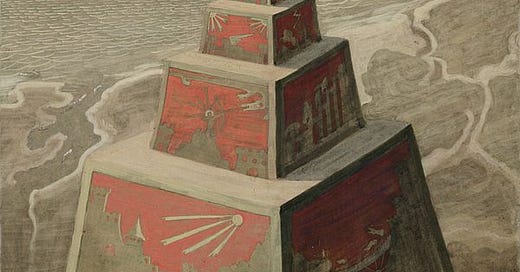


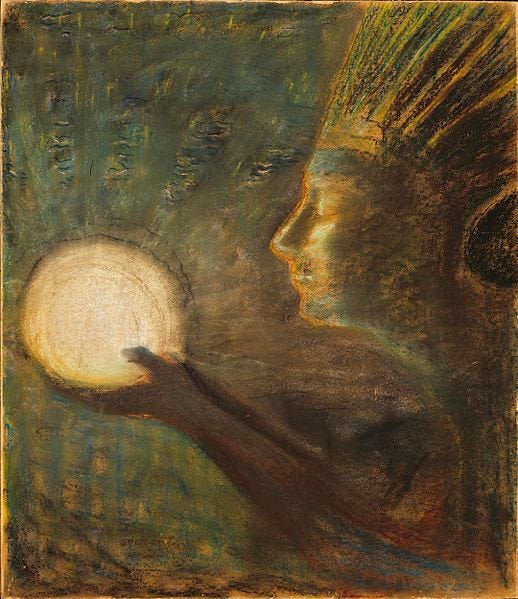

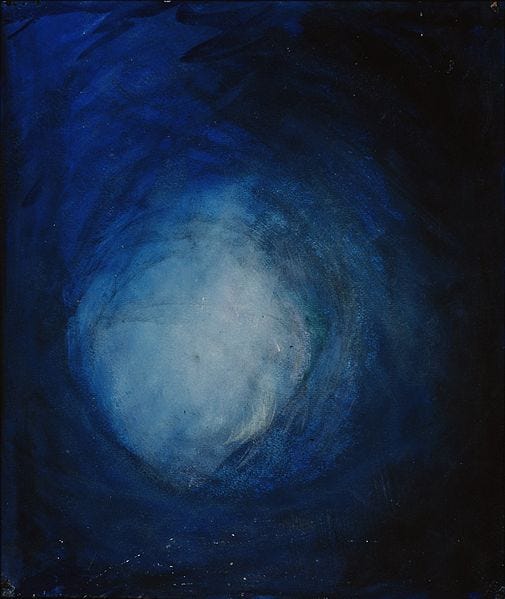


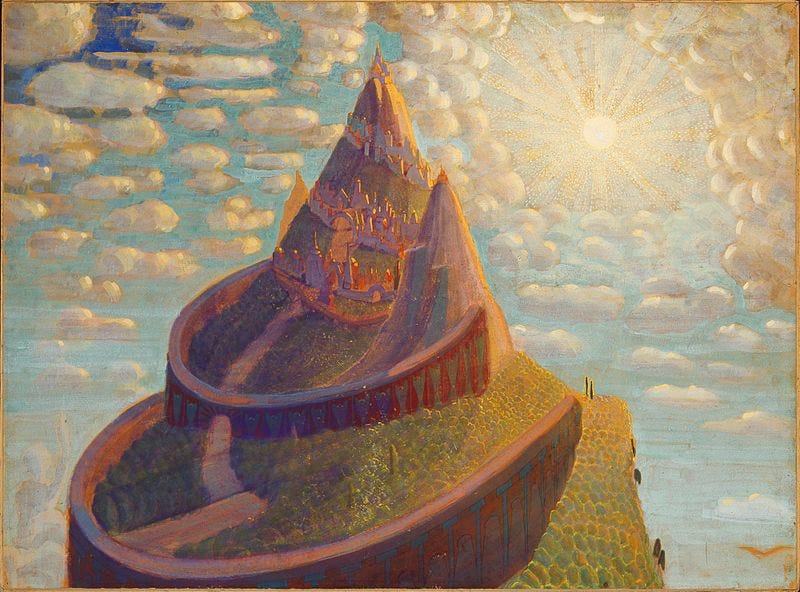
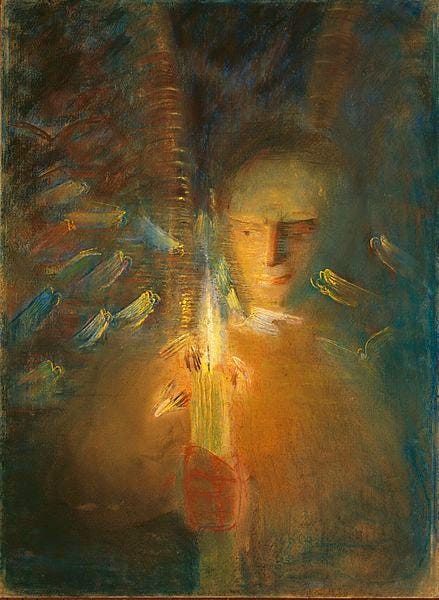
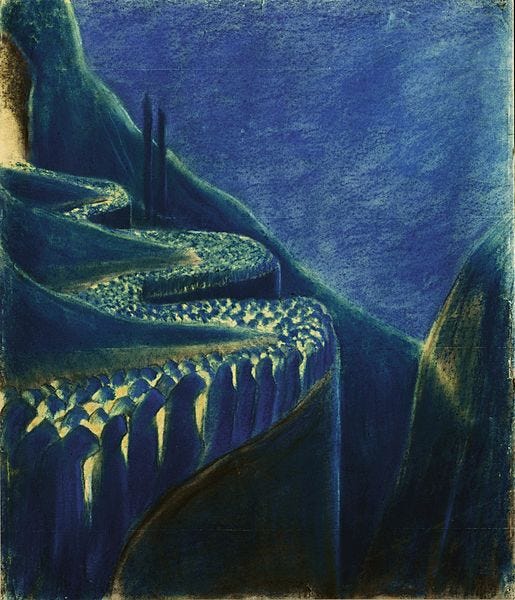
I feel personally attacked by the luddite's lament lol
If it all goes to shit, I'll go be a hermit in the himalayas, and keep the spirit of humanity alive with transcendental breath.
Until then, I'll be eating homegrown watermelon, naked, by the river.
AI is a microbic parasite, which the earth & God will brush away with a wisp of wind. maybe it'll take 20 years, maybe 20000. Ephemeral dust, in face of our eternal souls
I'm going to have to read this one three more times. Besides the fascinating subject matter, I love the way you organized each numbered idea. Brilliant!